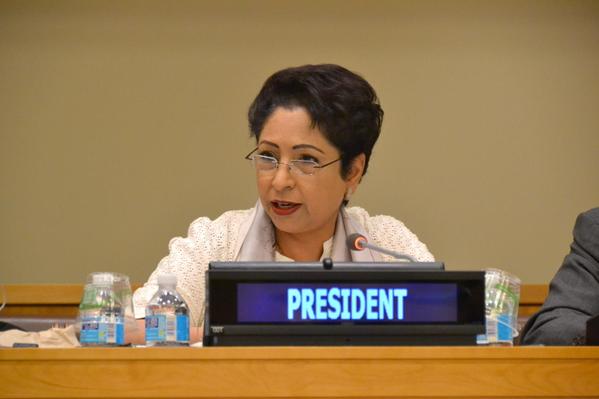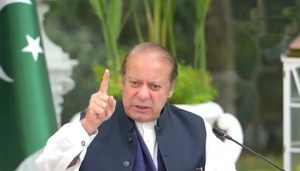NEW YORK – Pakistan has demanded an immediate cessation of drone strikes at the United Nations General Assembly, saying that they violate its sovereignty and territorial integrity, in addition to breaching the fundamental rights of victims and further fueling violence and extremism in the country.
Addressing the UN General Assembly, Ambassador Maleeha Lodhi condemned the continued use of drones and described it as a blatant disregard of existing international commitments on the use of remotely piloted aircraft. She was elaborating Pakistan’s position after the adoption of a resolution on the UN Global Counter-Terrorism Strategy by the 193-member Assembly.
During negotiations on the resolution, which spanned over a month, Pakistan made many efforts to further strengthen international commitments regarding illegal drone strikes and their impact.
In this regard, Ambassador Lodhi highlighted the recognition by member states of the notion that counter-terrorism measures violating territorial integrity and the sovereignty of States could be counterproductive and also fuel violent extremism.
She emphasized that the conclusions and recommendations of the report of the Human Rights Council on the use of drones, which was a first step in the right direction. The report raises legal questions on the use of drones, points out their grave impact on fundamental human rights and expresses serious concerns on how their use undermines counter-terrorism efforts.
The Pakistani envoy welcomed consensus on the resolution, which she said served as a strong and united signal against the scourge of terrorism. She also appreciated a renewed focus on the preventive approach to terrorism, which included addressing the root causes of terrorism as well as the internal and external drivers of violent extremism.
Ambassador Lodhi said that for Pakistan, such an approach was closely linked to promoting a culture of peace. The UN Declaration and Plan of Action, now included in the resolution, at Pakistan’s initiative, stresses the need to resolve protracted conflicts, ensure full realization of the people’s right to self-determination and addressing xenophobia and all forms of discrimination on the basis of religion, culture and ethnicity.
In the resolution, as an active member of the Organisation of Islamic Conference (OIC), Pakistan was also able to mobilize support to revive the international community’s focus on ending foreign occupation, resolving conflicts and confronting oppression, as well as enhancing intercultural understanding and ensuring respect for all religions and religious values.
Opening the two-day debate, Secretary-General Ban Ki-moon called on the international community to act with unity and resolve to deal with the unprecedented levels of terrorism and violent extremism across the world.”We have an urgent moral duty to do all we can to prevent and end this carnage,” the Secretary-General said.
“Taking collective preventive action against terrorism, in the spirit of our United Nations Charter, is the only way to secure peace and prosperity for succeeding generations,” he added.














